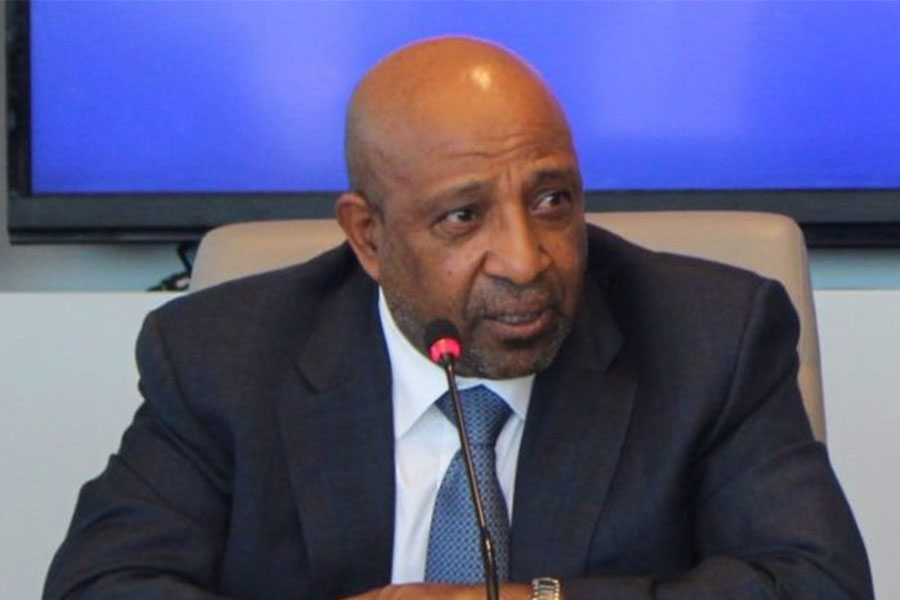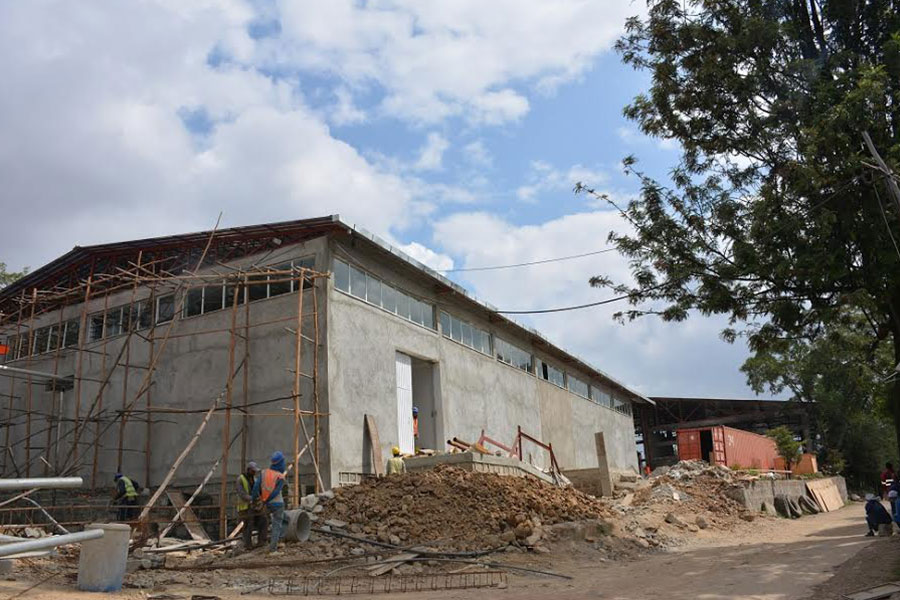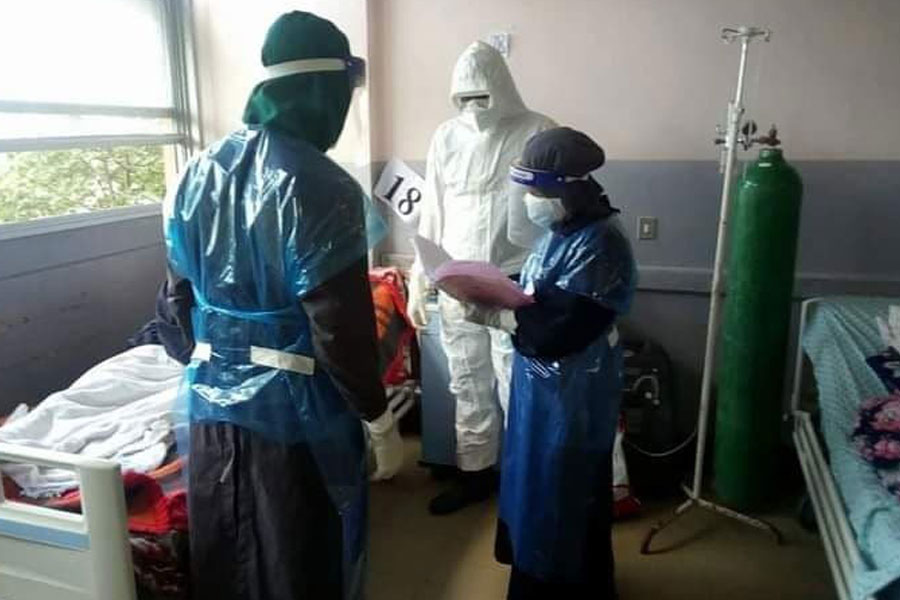
Jan 4 , 2020
By Yohannes Abebe
The people saw the recent violence and killings in our universities with stunned confusion and disbelief. Students and families were exposed to increased feelings of fear and anxiety, as well as additional costs.
As the reasons for the unrest are mainly associated with political turmoil, the solutions are also found in the will and agreement of political actors to play according to the rules.
That said, the people expect public and private security agencies to carry out their responsibilities as the requirements of the time and professional standards demand. Though marred by mismanagement and incompetence, the private security sector is growing in Ethiopia. Since most security guards are not trained and uncertified in some areas, they are also perceived as a threat by themselves.
And if universities have committed to protect the security and safety of their academic staff, other employees and students and enjoy their academic freedom, they have to organize their own security using the knowledge available at hand and international experience. But the problem in public and private businesses in Ethiopia is the lack of awareness that insecurity entails the loss of customers and might force their businesses to shut down. Most firms do not give proper emphasis to security management.
Even worse, some organise their security with gardening and janitorial services and attach its accountability to some lower management level. To avoid the problem of security management, company managers are heard saying that doing security work is not their mission. That assumption was taken from the introduction of strategic management courses and outsourcing.
In fact, parallel to their mission, the responsibility of this honourable job of protecting employees and customers’ lives and property in any company rests on the upper management. So university management must take quick security measures that boost confidence and trust in their respective campuses.
Until now organized community measures taken by elders, religious institutions and the local people are encouraging, and in some cases they deterred conflicts from escalating. But now we need a system that deters crime effectively and arrests perpetrators while they are preparing to commit the crime or immediately at the crime scene.
We cannot afford to lose additional student lives. The first action security management has to do in such times is to form a dispatch unit from existing guard posts that arrive at the crime scene in the shortest time possible. When a dispatcher receives a call, he passes the details to the assigned units in the guard posts, and they immediately respond to the crime scene.
This is similar to what the police call the split patrol method. To tackle the shortage of manpower, management has to create overtime accounts so they can overlap security guard shifts to cover effectively during peak times of dining or off-class hours.
In addition, to prevent student fights from escalating and apprehend perpetrators on the spot, we need hiding rooms partitioned out from existing buildings. These hiding rooms should be placed on isolated and suspicious places in buildings or near dorms or cafeteria as past data leads.
Also using blending techniques in which security guards play student roles is effective. This technique helps either to collect information or arrest perpetrators.
Harnessing the support of student volunteers and recruiting from the law-abiding mass of students for this purpose is very beneficial. It is up to the security manager to analyse information that is coming from various sources and take appropriate actions accordingly.
Crime prevention is all about anticipation, recognition and appraisal of a crime risk and the initiation of action to remove or to reduce it. Consequently, university management, after collating the contributions of local community groups, should search for research funds from the National Security Council and other concerned agencies to carry out further studies. But first they are expected to mobilise their knowledge resources from their faculties.
Universities should rally resources on hand and form a security task force. The team may comprise experts from departments of management, law, sociology, psychology, Statistics and environmental engineering. Also, medical faculty can contribute in first aid training for security personnel. This research team may look into security guard strength in terms of the campus population and area, selection processes and training, availability of security policy, guidelines and procedures based on the criminal law and procedures.
Also, the crime statistics should be analysed in terms of time, place victims and offenders. Environmental engineers also focus on whether buildings mirror each other, lighting at night and the landscape, and bushes that prevent proper view and serve as hideouts.
Measuring response time to student calls and other emergencies, and the procedures to scale up or down security risk levels, and placing calls to get help from local and federal law enforcement agencies are very important areas to be examined.
What is more evident this time is that we no longer rely on traditional ways of doing security. Focusing only on the main gate protection and doing body search with a guard holding an automatic rifle may give a sense of security. But today’s reality is different and complex with the advent of modern technology and professional criminals. Using innovative and alternative ways of doing security work, like undercover operations, is not left only to police and public security agencies. Private security firms can also perform investigations using undercover operations and various types of security gadgets.
Thus using the opportunity created by the federal police, universities should embark on improving their security and do research in parallel. A university in Ethiopia is “Ethiopia” itself. So staffing the security personnel from various language groups is helpful in strengthening communal relations. In doing so, making incremental changes in manpower and using a mix of security technology is mandatory.
If funds are available, a university can establish its own computerised control room and even create linkage with local police to see the crime scene in real-time video coverage. In order to accomplish the goals of research and development of universities, the required peace and security must prevail. And for this to happen, security management research is one main field to pursue in order to avoid total shutdown.
PUBLISHED ON
Jan 04,2020 [ VOL
20 , NO
1027]


Fortune News | Apr 19,2025

Verbatim | Sep 10,2023

Radar | Apr 13,2019

Fortune News | Feb 09,2019

Agenda | Oct 31,2020

Fortune News | Oct 06,2024

Radar | Nov 14,2020

Viewpoints | Jun 27,2020

Fortune News | Nov 20,2021

Commentaries | May 08,2021

My Opinion | 131451 Views | Aug 14,2021

My Opinion | 127803 Views | Aug 21,2021

My Opinion | 125783 Views | Sep 10,2021

My Opinion | 123419 Views | Aug 07,2021

Dec 22 , 2024 . By TIZITA SHEWAFERAW
Charged with transforming colossal state-owned enterprises into modern and competitiv...

Aug 18 , 2024 . By AKSAH ITALO
Although predictable Yonas Zerihun's job in the ride-hailing service is not immune to...

Jul 28 , 2024 . By TIZITA SHEWAFERAW
Unhabitual, perhaps too many, Samuel Gebreyohannes, 38, used to occasionally enjoy a couple of beers at breakfast. However, he recently swit...

Jul 13 , 2024 . By AKSAH ITALO
Investors who rely on tractors, trucks, and field vehicles for commuting, transporting commodities, and f...

Jun 28 , 2025
Meseret Damtie, the assertive auditor general, has never been shy about naming names...

Jun 21 , 2025
A well-worn adage says, “Budget is not destiny, but it is direction.” Examining t...

Jun 14 , 2025
Yet again, the Horn of Africa is bracing for trouble. A region already frayed by wars...

Jun 7 , 2025
Few promises shine brighter in Addis Abeba than the pledge of a roof for every family...

Jun 29 , 2025
Addis Abeba's first rains have coincided with a sweeping rise in private school tuition, prompting the city's education...

Jun 29 , 2025 . By BEZAWIT HULUAGER
Central Bank Governor Mamo Mihretu claimed a bold reconfiguration of monetary policy...

Jun 29 , 2025 . By BEZAWIT HULUAGER
The federal government is betting on a sweeping overhaul of the driver licensing regi...

Jun 29 , 2025 . By NAHOM AYELE
Gadaa Bank has listed 1.2 million shares on the Ethiopian Securities Exchange (ESX),...